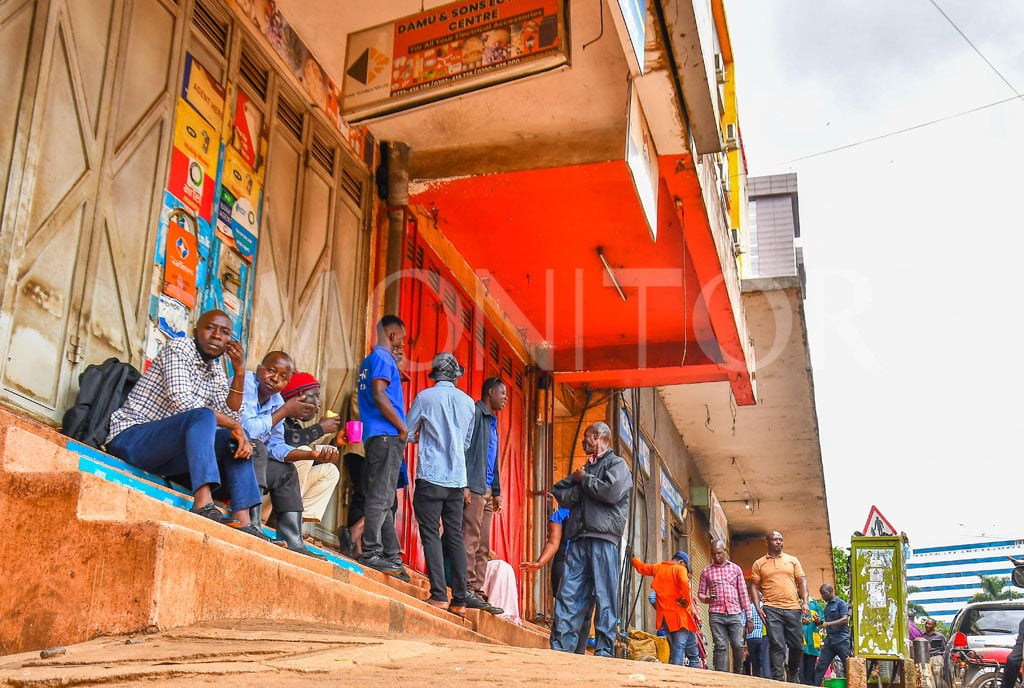
URA officials assist people to get Tax Identification Numbers. PHOTO/FILE
With the budget reading around the corner, Prosper Magazine’s Ismail Musa Ladu spoke with the executive director of Civil Society Budget Advocacy Group (CSBAG), Mr Julius Mukunda about budget performance and transparency, and how the World Bank freeze on new projects will affect the budget. He also explains how illicit financial flows (IFF) is bleeding service delivery and proposed some ways how Uganda’s national budget can optimally deliver on its promises.

Mr Julius Mukunda, the executive director of Civil Society Budget Advocacy Group. PHOTO/FILE
Does the Shs72 trillion budget make sense or it is too ambitious?
The Shs72 trillion budget is undoubtedly ambitious. However, this doesn’t make it unachievable. It is important to recognise that this is a cash budget, meaning its implementation is contingent upon the availability of resources. While this budget may be viewed as comprehensive and forward-looking, it warrants scrutiny regarding certain items prone to misuse and wastage. While the budget may be ambitious, if the resources are secured as planned, and budget execution is efficient, then its ambitions can be realised.
Is there a correlation between illicit financial flows (IFF) and the budget in terms of constraining budget implementation?
Illicit financial flows that involve tax evasion and corruption can have severe impacts on the budget. This is because they reduce the revenue base, and distort service delivery. Budget implementation solely depends on availability of resources which depend on revenue availability.
What do you like about the 2024/25 budget?
I appreciate several aspects of the 2024/25 budget as they directly benefit the population. For example, the commitment of Shs1.27 trillion to start the construction of the Standard Gauge Railway (SGR) and continue preparatory activities, reflecting a strategic investment in modernising transportation infrastructure to spur economic growth cannot be emphasised enough.
The allocation of Shs142.3 billion for the rehabilitation of District, Urban, and Community access roads (DUCAR), facilitating improved connectivity and mobility for citizens in rural and urban areas as well as the allocation of Shs30 billion to support the certification and production of seeds, breeds, and (MAAIF), indicating support for agriculture and food security initiatives are things we like in the 2024/25 budget.
Then there is also the provision of Shs60 billion for the roll-out of anti-vaccine by NARO, demonstrating a commitment to public health initiatives and disease prevention strategies, and the allocation of Shs23.04 billion for the procurement of tractors and matching implements by the Ministry of Agriculture, which supports efforts to modernise and improve agricultural productivity, are developments we applaud.
Additionally, we also commend the allocation of Shs38.56 billion towards infrastructure development at the Uganda Cancer Institute (UCI). Provision of Shs20 billion for the rehabilitation and construction of General Hospitals is another positive move. Allocation of Shs569 billion for essential medicines and health supplies and provision of Shs26.35 billion for local Government Primary Health Care services are all commendable developments.
How would you rate the 2023/2024 budget performance as financial year comes to a close?
Look, let me give you some facts, and perhaps you could do your rating. For starters, whereas Parliament approved Shs52.73679 trillion, this was revised to Shs 60.275 trillion through a Shs 7.538 trillion supplementary budget. In April 2024 Ministry of Finance updated the nation that the government had released up to 98.4 percent of the total budget for the Financial Year (FY) 2023/24, which is a good release performance.
Now, if you look at the half Year Macroeconomic and Fiscal Performance Report FY2023/24, indicates a shortfall in tax revenue collections amounting to Shs 813.52 billion, which is equivalent to 45 per cent of the total tax revenue target for the whole of FY 2023/24. The shortfall was attributed to below performance of taxes on international trade transactions and indirect domestic taxes. So now you can make your own judgment or rating if you like!
We believe that addressing the gaps in revenue collection and ensuring more effective implementation of allocated funds will be crucial in enhancing the budget’s performance and ultimately improving service delivery to the public.
Anything you would want to see suspended or wiped out of the coming budget going by the experience of the 2023/2024 budget?
At the time of approval, Parliament could have stayed most expenditure priorities in this budget, which despite government investments, they have not yielded the desired outcomes. Some of these include the Shs553.71 billion allocation for the Atiak sugar factory; the Shs475 billion investment in the Lubowa specialized hospital and the Shs723 billion allocation to DEI Pharmaceuticals.
World Bank’s position hasn’t changed regarding extending new loans to Uganda. How will that affect 2024/25 budget and how can it be mitigated?
The World Bank has assured the government that ongoing projects would not be affected by this freeze. This goes without saying that there will be increased scrutiny of how these projects are going to be implemented.
However, the fact that government may not contract new loans from World Bank, could potentially hinder the government’s ability to meet financial obligations leading to increased pressure for commercial loans and domestic borrowing as well as reduced financing in social sectors, worsening Foreign Direct Investment (FDI) performance.
The debt issue is becoming a real matter of contention. What does it mean for the budget and service delivery?
The escalating debt situation in Uganda, compounded by Moody’s downgrade of our economy, has significant implications for both the budget and service delivery.
With a lower credit rating, borrowing becomes more expensive, potentially increasing the financial burden for debt servicing. This strains the fiscal space available for critical development needs, reducing discretionary resources from Shs25.205 trillion in FY2023/24 to Shs22.439 trillion in FY 2024/25.
Continuous government borrowing beyond programmed debt levels further diminishes this fiscal space. To address these challenges, it is essential to prioritise prudent fiscal management and implement debt sustainability measures.
Additionally, efforts to enhance economic resilience are crucial for safeguarding budget priorities and ensuring effective service delivery to the populace.
How else can revenue be raised more efficiently to support budget in its delivery?
Uganda Revenue Authority (URA) must forge partnerships to streamline tax collection. It can sublease these services to either Local government or competent private sector players. The other issue is fiscal social accountability. Malpractices such as corruption and inadequate service delivery not only erode public trust but also dampen citizens’ willingness to fulfill their tax obligations.
There is a need for the rollout of the tax reforms. Many reforms have been introduced by URA. However, their effectiveness is largely hinged on adequate rollout plans as well as heavy investment in awareness and mindset shifts of taxpayers
Three quick proposals that can ensure the coming budget optimally delivers on its promises.
First, the government must commit to enforcing fiscal discipline to ensure timely disbursements, eliminating nugatory expenditure and ensuring that collected revenue is invested in productive areas. Then, citizens need to see government prudence in reducing supplementary expenditures which distort the planning and budgeting processes.
Lastly, Government must improve on the persistent low budget absorption which affects service delivery.




